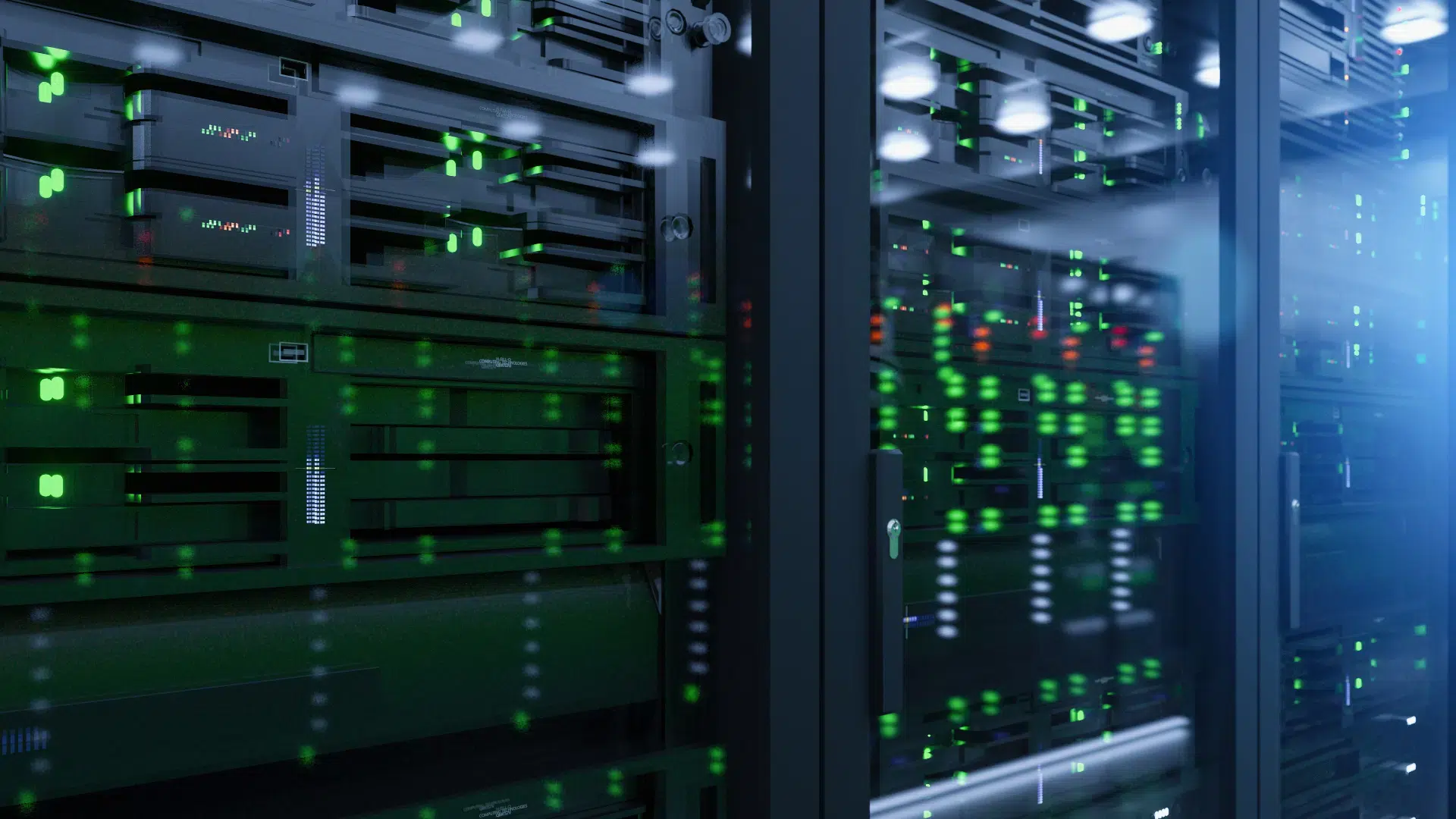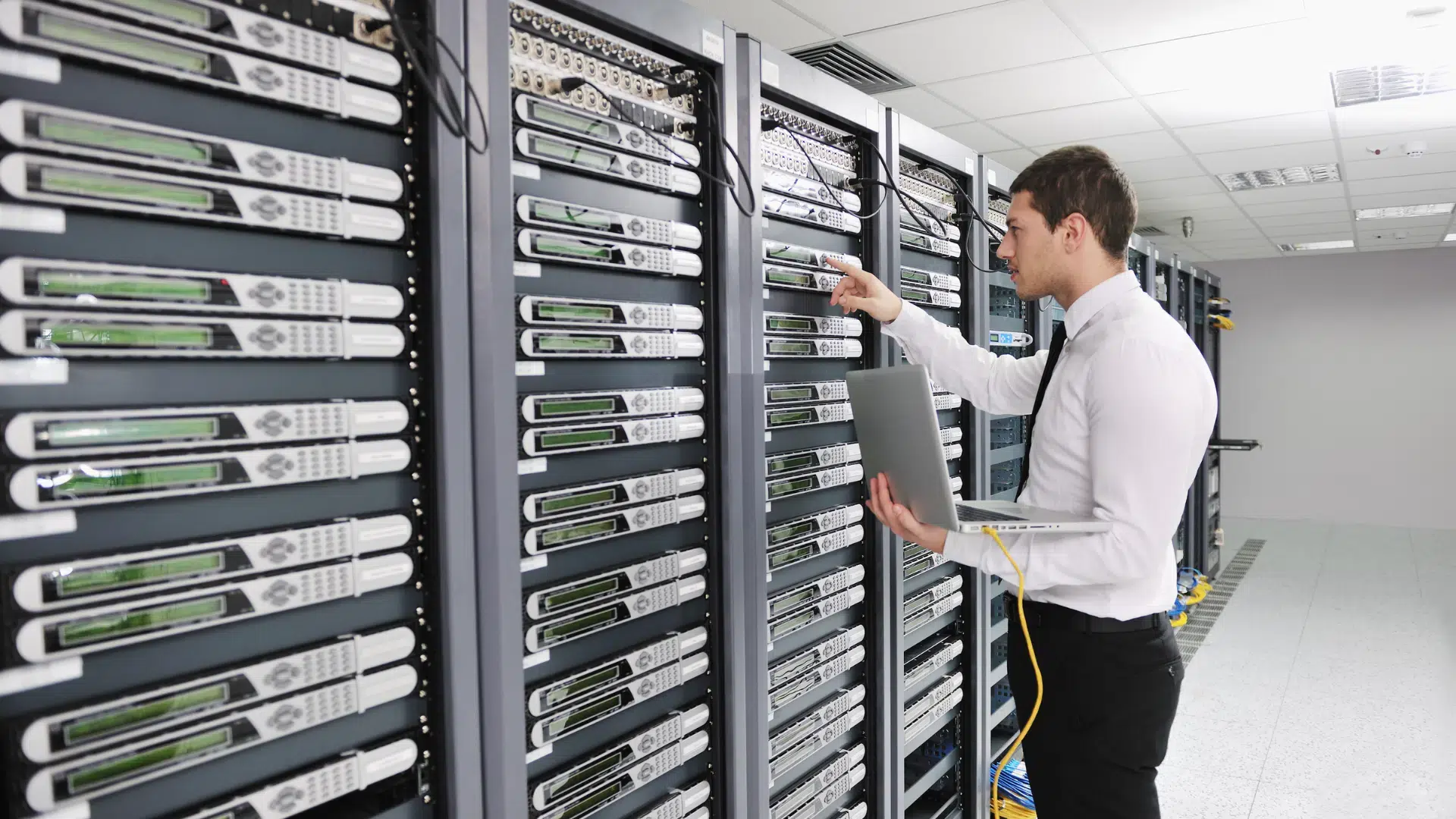Data center (datacenter) security is not just a buzzword, it’s a vital element that keeps your company’s data safe and secure. In today’s world, data breaches and cyber attacks are becoming more common, making it more important than ever to have robust security measures in place.
In this blog post, we’ll explore what data center security is and how it works. If you are an IT professional or business owner, this blog post will provide you with all the information you need to keep your data center safe and secure from threats.
 Security in data centers is an everyday task.
Security in data centers is an everyday task.
What is data center security?
Data center security refers to the protection of data centers and their stored information. It involves physical and cybersecurity measures such as access controls, firewalls, encryption and surveillance systems. It is crucial to maintain the confidentiality, integrity and availability of data.
Maintaining effective data center security is crucial to protect confidential business information from unauthorized access or external threats. Such security measures comprise both physical security controls such as surveillance cameras, access control gates and environmental monitoring equipment along with cybersecurity measures such as firewalls with intrusion prevention and two-factor capabilities. Regular security audits and employee training programs can improve data center security while adhering to industry standards such as ISO certification requirements.
Key vulnerabilities for data centers
For data centers in El Salvador, effective management of confidential data in a server room requires an understanding of the potential dangers that threaten its integrity. Protecting intellectual property or customer information requires the implementation of rigorous measures to ensure confidentiality.
Physical and network security threats present significant risks to IT administrators who are responsible for the secure operation of data centers. Human error, such as weak passwords, can lead to unauthorized access or perimeter breaches caused by natural disasters. For this reason, IT teams must implement best practices such as two-factor authentication or intrusion prevention systems to counter cyber threats.
Firewall protection in the datacenter
To protect your datacenter from attacks, the implementation of firewall protection is crucial. By blocking incoming traffic from suspicious or known malicious IP addresses, firewalls prevent unauthorized access. Regularly updating firewall rules and configurations ensures maximum security against external threats such as cyber criminals and hackers.
Combining intrusion detection and prevention systems with firewalls adds an additional layer of security. Monitoring firewall logs regularly can help detect potential security breaches before they cause damage.
Physical data center security measures
To ensure data center security, strong physical security measures are essential. Limiting physical access to authorized personnel using access control systems is critical. Security cameras and guards act as a strong deterrent against attackers.
Perimeter protection features, such as fences and barriers, can help prevent unauthorized individuals from approaching the facility. Maintaining these measures regularly can significantly reduce vulnerabilities.
Protection of virtual workloads, virtual workloads
To ensure data center security, it is crucial to protect virtual workloads. Properly securing virtual machines and containers prevents unauthorized access or data breaches. Firewalls and other security measures protect virtual networks from external threats.
Regular software updates address known vulnerabilities and network segmentation reduces the potential impact of a security breach.
Data center backup and disaster recovery planning
To ensure uninterrupted data center operations in the midst of unforeseen circumstances such as cyber threats or natural disasters, robust backup and disaster recovery plans are crucial. Testing backup systems regularly is also vital to check their effectiveness.
In addition, making use of cloud-based solutions and training employees on proper backup and disaster recovery procedures can improve the security posture. Adopting best practices, such as multi-factor authentication and intrusion prevention, can further protect sensitive customer data stored on the server.
At DataTrust we are ready and trained for this type of eventuality. Security in a data center is no easy task.

Conclusion
Data center security is a critical aspect of protecting your company’s digital assets. With the growing number of cyber threats, protecting your data center is more important than ever. You should know the key vulnerabilities in your data center and implement essential data center security tips.
This includes firewall protection, physical security measures, virtual workload security, backup and disaster recovery planning, and surveillance monitoring systems. It is equally essential to have visibility into your data centers and measure their security effectiveness on a regular basis. Don’t wait for an attack to occur; take proactive steps to protect your data center today. For more information on best practices for data center security, write to us. We’re ready to hear from you.

